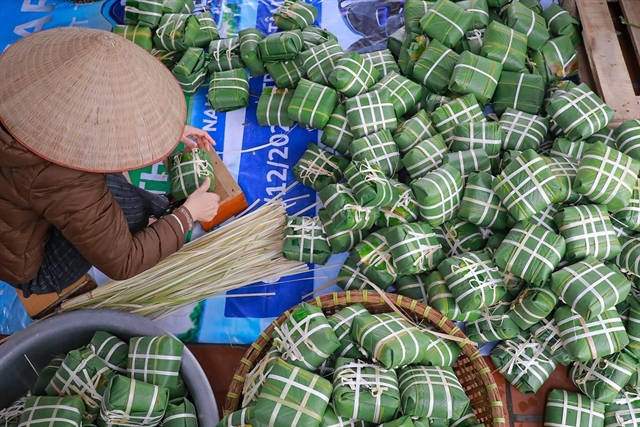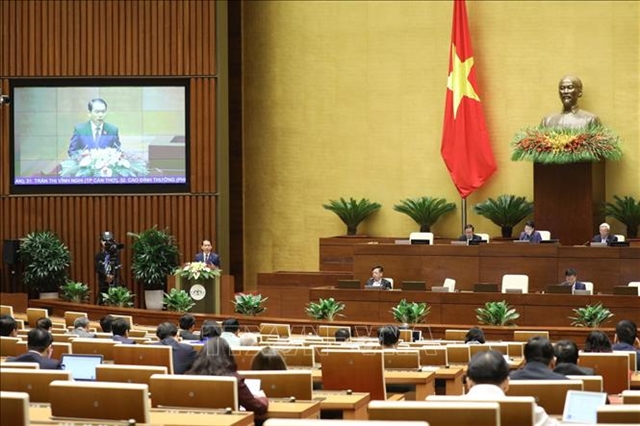 Politics & Law
Politics & Law


|
| Deputies discuss the draft revised Law on Handling Administrative Violations on Thursday. — VNA/VNS Photo |
HÀ NỘI — The controversial penalty relating to cutting off electricity and water supply imposed on individuals and organisations that commit violations divided deputies of the National Assembly on Thursday as they discussed the draft revised Law on Handling Administrative Violations.
Some deputies proposed not including the measure in the law because a review showed there were a number of difficulties in its enforcement.
Electricity and water are essential for individuals and organisations, so if this measure is applied, it will have a negative impact not only on individuals and organisations who break the law but also on others.
According to Ma Thi Thúy, a deputy from Tuyên Quang Province, the application of this measure will lead to a violation of human rights and sanctioning principles.
The supply of electricity and water services is carried out under civil contracts signed between households, individuals and organisations and service providers. “This coercive measure does not show humanity and is not convincing, while it is not feasible. It is also contrary to the principle of self-agreement and self-responsibility specified in the Civil Code,” she said.
While some opposed the rule, many others voiced support for the sanction, saying it was necessary. They believed the measure would be effective in forcing individuals and organisations to obey the law.
However, they said the scope of application should be narrowed so it would not affect other individuals or organisations.
Deputy Tô Văn Tám from Kon Tum Province pointed out that administrative sanctions must be strictly observed.
Currently, there are some coercive measures, but in certain fields, these measures are not strict enough. Therefore, coercive measures such as cutting off electricity and water were essential, he said, adding that it must be done with caution and only in some areas.
Tám suggested that the measure should be imposed in the field of construction and environmental protection and with certain conditions.
He said he was still concerned about its feasibility because it might leave an impact on people who are not involved in the incident.
“The measure should be associated with the responsibility of the entity who provides electricity and water services to ensure feasibility," Tám said.
Compulsory drug treatment
The application of administrative measures to drug addicts from 12 to under 18 years old also grabbed the attention of NA deputies.
The majority of deputies proposed young drug addicts should be forced to go to drug rehabilitation centres.
However, some deputies said this issue should only be specified in the Law on Drug Prevention and Control, they said.
Speaking at the discussion, Mai Thị Phương Hoa, a deputy from Nam Định Province, underlined the need to include an administrative penalty – sending under-18 drug addicts to rehabilitation centres – in the law to ensure transparency and it should be in harmony with other punishments.
Concluding the discussion, Hoàng Thanh Tùng, Chairman of the NA’s Committee for Legal Affairs said the Law on Drug Prevention and Control provided general provisions on drug addiction treatment, including compulsory treatment at rehabilitation centres.
Thus, forced treatment should not be considered an administrative sanction on drug addicts under the age of 18 and not be included in the Law on Handling Administrative Violations.
Such provisions contributed to ensuring the best interests for those under 18, and is in accordance with the Law on Children and international treaties to which Việt Nam is a signatory, Tùng said.
Also on Thursday, the NA deputies gave opinions on a draft revised Law on International Agreements. — VNS




